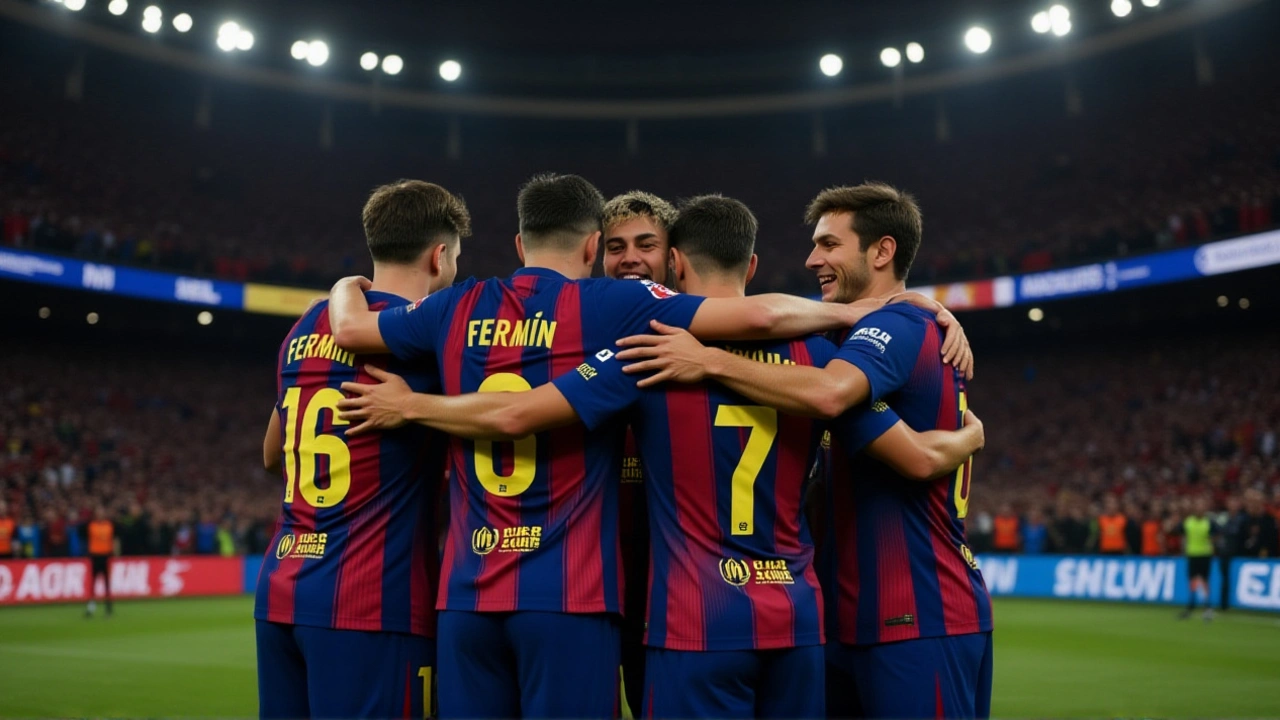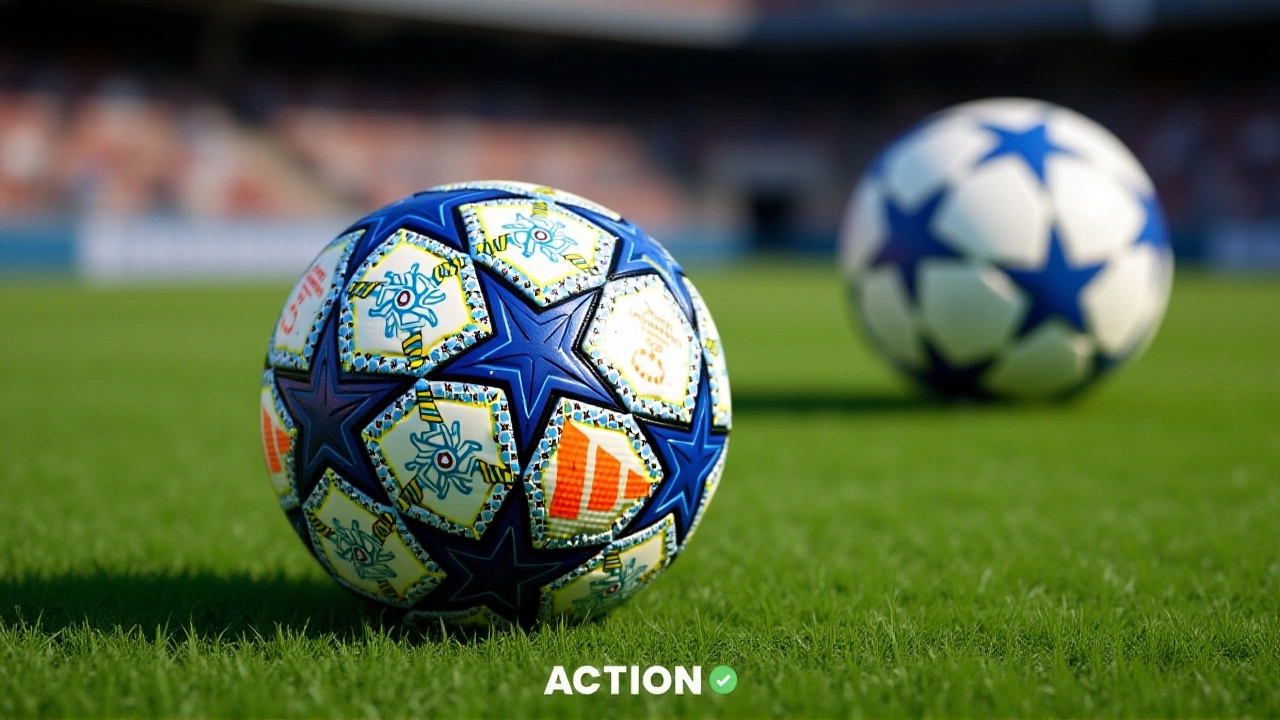Chelsea Football Club delivered a masterclass in European football on Tuesday, November 25, 2025, dismantling FC Barcelona 3-0 at Stamford Bridge in a match that sent shockwaves through the UEFA Champions League group stage. The win wasn’t just about the scoreline—it was a statement. For the first time in history, Chelsea had beaten Barcelona by a three-goal margin in European competition, and they did it while holding firm defensively, forcing errors, and capitalizing on Barcelona’s unraveling discipline. The match ended at 9:45 PM GMT, with the Catalan giants reduced to 10 men after just 37 minutes, and the home crowd roaring as if they’d just won the trophy.
A Night of Chaos and Control
The game began with Barcelona looking composed, Ferran Torres missing a golden chance in the 12th minute. But Chelsea, under manager Enzo Maresca, were already in control. Their pressing, their shape, their intensity—it was all calibrated. Then, in the 26th minute, chaos erupted. A cross from Pedro Neto clipped the outstretched leg of Jules Kounde, the Barcelona center-back, and looped over the stranded netminder. The ball trickled in. Own goal. 1-0. The stadium exploded. By the 37th minute, things turned catastrophic for Barcelona. Ronald Araújo, their rock at the back, received a straight red for a reckless tackle on Enzo Fernández. The Uruguayan’s dismissal wasn’t just a tactical blow—it was a psychological collapse.
Estevão and Delap Seal the Deal
Chelsea didn’t let up. In the 54th minute, Estevão Willian, the 18-year-old Brazilian winger, danced past two defenders and curled a left-footed shot into the top corner. The crowd chanted his name like he’d been at the club for a decade. Then, in the 78th minute, Liam Delap, the 22-year-old English striker, finished off a slick counterattack with a low drive from the edge of the box. 3-0. The result was emphatic, but the performance was even more telling. That’s Football’s Mark Goldbridge captured it best: "Chelsea put the ball in the back of the net a lot more than three times." At least three goals were ruled out for offside—each one a testament to how relentlessly Chelsea attacked.
Barcelona’s Crisis Deepens
Barcelona’s problems aren’t new. They lost 2-1 to Paris Saint-Germain in October. They’ve conceded 11 goals in their last three Champions League matches. Their midfield looks disjointed. Their defense is brittle. And their manager, Hansi Flick, is under mounting pressure. After the match, Flick admitted, "We didn’t match their hunger." That’s not a tactical critique—it’s a moral one. This wasn’t a case of bad luck or refereeing errors. It was a team outclassed, outthought, and outplayed. Their 7 points from 5 matches now put them in danger of finishing third in Group C, which means elimination from the Champions League entirely. For a club that’s won it five times, that’s unthinkable.
Chelsea’s Rise Is Real
Meanwhile, Chelsea’s resurgence is impossible to ignore. This was their third consecutive clean sheet in the Champions League. They’ve now won four of five group matches, sitting atop Group C with 12 points. Their young core—Estevão, Delap, Garnacho, Neto—is playing with fearless maturity. Maresca’s system, built on vertical transitions and compact defensive lines, has turned Stamford Bridge into a fortress. Even the fans who once booed his name now sing it. "Could Chelsea be in a title race with Arsenal?" asked Goldbridge. It’s not a joke anymore. They’ve beaten Manchester City, drawn with Real Madrid, and now crushed Barcelona. This isn’t a flash in the pan. It’s the birth of a new identity.

What This Means for European Football
The 3-0 result isn’t just a win—it’s a turning point. For years, Barcelona’s name carried weight in Europe. Now, their aura is fading. Chelsea, once seen as a club in transition, are now the ones setting the pace. The gap between them isn’t just in points—it’s in mentality. Barcelona still rely on individual brilliance. Chelsea play as a machine. And in knockout football, machines win trophies. The implications ripple beyond this group. If Barcelona fail to advance, it could trigger a managerial shake-up and a summer rebuild. For Chelsea, this win cements their status as genuine contenders for the final in Munich next June.
Timeline of Key Moments
- 12th minute: Ferran Torres misses a clear chance for Barcelona
- 26th minute: Jules Kounde’s own goal gives Chelsea the lead
- 37th minute: Ronald Araújo sent off for violent conduct
- 54th minute: Estevão Willian scores his first Champions League goal
- 78th minute: Liam Delap seals the victory
- 90+3rd minute: Match ends 3-0; Chelsea fans celebrate with fireworks
Frequently Asked Questions
How does this result affect Chelsea’s chances of winning the Champions League?
Chelsea now sit at the top of Group C with 12 points, needing only a draw in their final match to guarantee progression. With three clean sheets in a row and a lethal attacking trio in Estevão, Delap, and Neto, they’ve shown they can compete with Europe’s elite. Their defensive discipline under Maresca is among the best in the tournament. If they maintain this form, they’re genuine contenders for the final in Munich.
Why is Barcelona struggling so badly in Europe this season?
Barcelona’s issues stem from a lack of midfield control, inconsistent defending, and overreliance on individual moments rather than team structure. Hansi Flick’s system hasn’t clicked with their squad’s strengths, and key players like Gavi and Lenglet have been sidelined by injuries. Their loss to PSG and now Chelsea reveals a team that looks mentally fragile under pressure. They’ve conceded 11 goals in their last three Champions League games—a historic low for the club.
Who are the standout players from Chelsea’s performance?
Estevão Willian, at just 18, announced himself on the European stage with a stunning goal and relentless energy. Liam Delap was clinical, showing poise beyond his years. Enzo Fernández dictated tempo in midfield, while Pedro Neto’s dribbling kept Barcelona’s defense guessing. Defender Malo Gusto was also outstanding, making six clearances and intercepting five passes. This wasn’t a one-man show—it was a team performance.
What does this mean for Enzo Maresca’s future at Chelsea?
Maresca’s position is now untouchable. After last season’s criticism, this campaign has completely reversed perceptions. His tactical discipline, man-management of young players, and ability to adapt in big games have turned him into a fan favorite. Reports suggest Chelsea’s board is already discussing a contract extension, and he’s being linked with a potential move to manage England’s U21 side next year. He’s not just saving Chelsea—he’s rebuilding its identity.
Is this the end of Barcelona’s dominance in Europe?
Not necessarily, but it’s a sign that their era of unquestioned authority is over. Real Madrid and Bayern Munich are still formidable, but Barcelona’s inability to compete consistently against top-tier sides suggests they’re no longer in the same league. Without a clear sporting director, a coherent transfer strategy, and a stable manager, their decline may continue. This loss could be the catalyst for a full rebuild—something their fans have been calling for since 2021.
Why were so many Chelsea goals disallowed?
Chelsea’s attacking movement was so aggressive that multiple offside calls were made by VAR. According to Sony Sports Network’s broadcast, at least three legitimate goals were flagged—two from Estevão and one from Delap. The linesman’s positioning and the speed of Chelsea’s transitions made it difficult to judge. Still, it speaks to their attacking threat. If they can clean up their final third decision-making, they could be scoring five or six goals per game in the knockout rounds.
